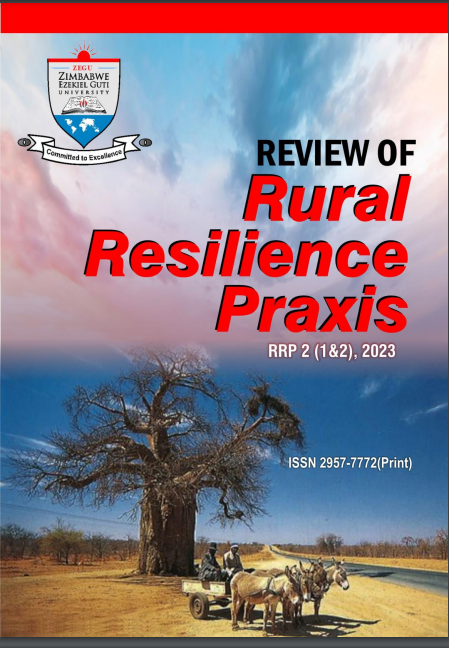Small Livestock Rearing as A Mitigation Against the Vagaries of Climate Change Impacts in Rural Zimbabwe
DOI:
https://doi.org/10.71458/c5dh0z69Keywords:
sustainable and agriculture, Adaptation, Livelihood, Resilience, RuralAbstract
This chapter critically examines the adoption of livestock rearing in Zimbabwe as mitigation measure against the adverse impacts of climate change in the rural areas. Climate change has proved to be a major challenge to the sustainability of rural livelihoods in Zimbabwe which are more dependent on agriculture hence the production of small livestock is a mitigation measure for sustaining rural households in the countryside where the effects of climate change are severe. This study is centred on how small livestock rearing can be a panacea to the impacts of climate change in the rural areas of Zimbabwe. Document and literature review was used to collect and gather information presented in this study. Various existing documents were reviewed for the purpose of this study and both qualitative and quantitative data was generated, presented and critically analysed. The results indicates that the adaptation of small livestock rearing has already began in the country as noted by their production in most parts of Matebeleland and Masvingo Province respectively. It can be argued that in as much small livestock rearing is a hedge against climate change effects in rural areas there is still limited information on how these are kept and their various breeds as well as the diseases that attack them and their treatment. Farmers still lack enough knowledge with regards to small livestock which is limiting its production and adaptation in the country. The study recommends the education of farmers on various diseases and the availability of medicines for treatment close to farmers. The study proposes coordination of the government, rural farmers and non-governmental organisation in raising awareness and fostering the adaptation of small livestock farming.




